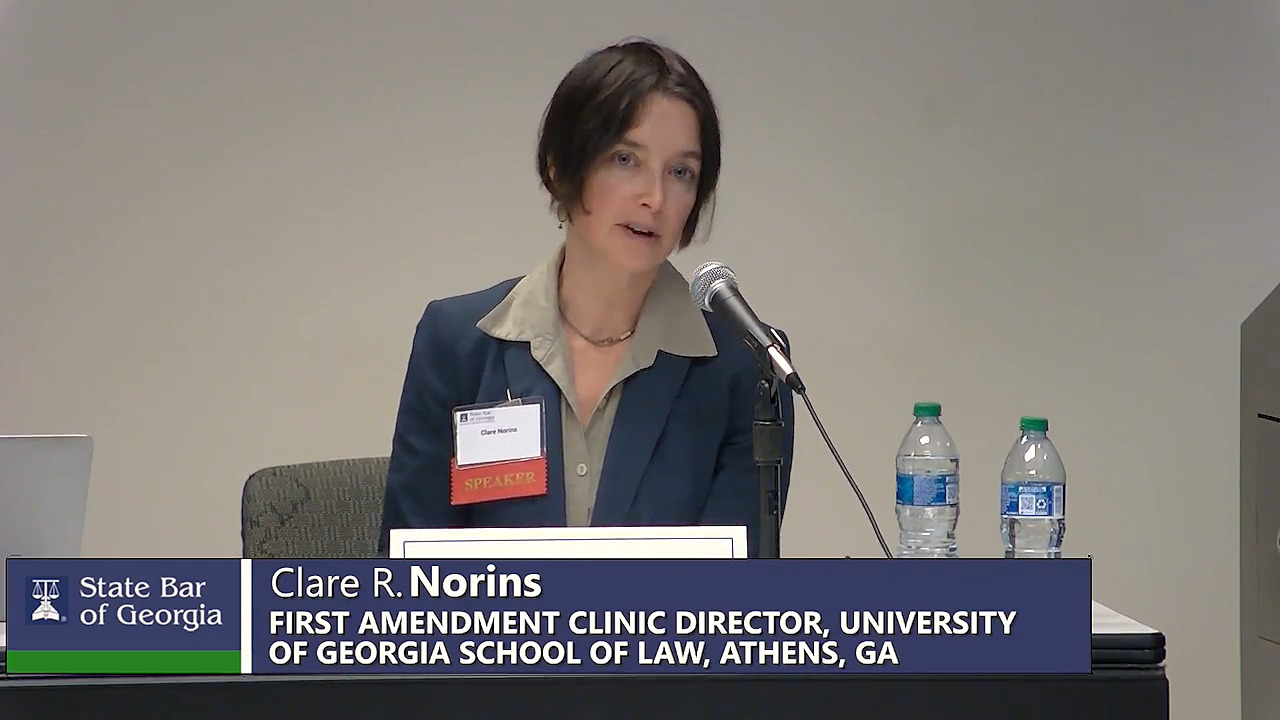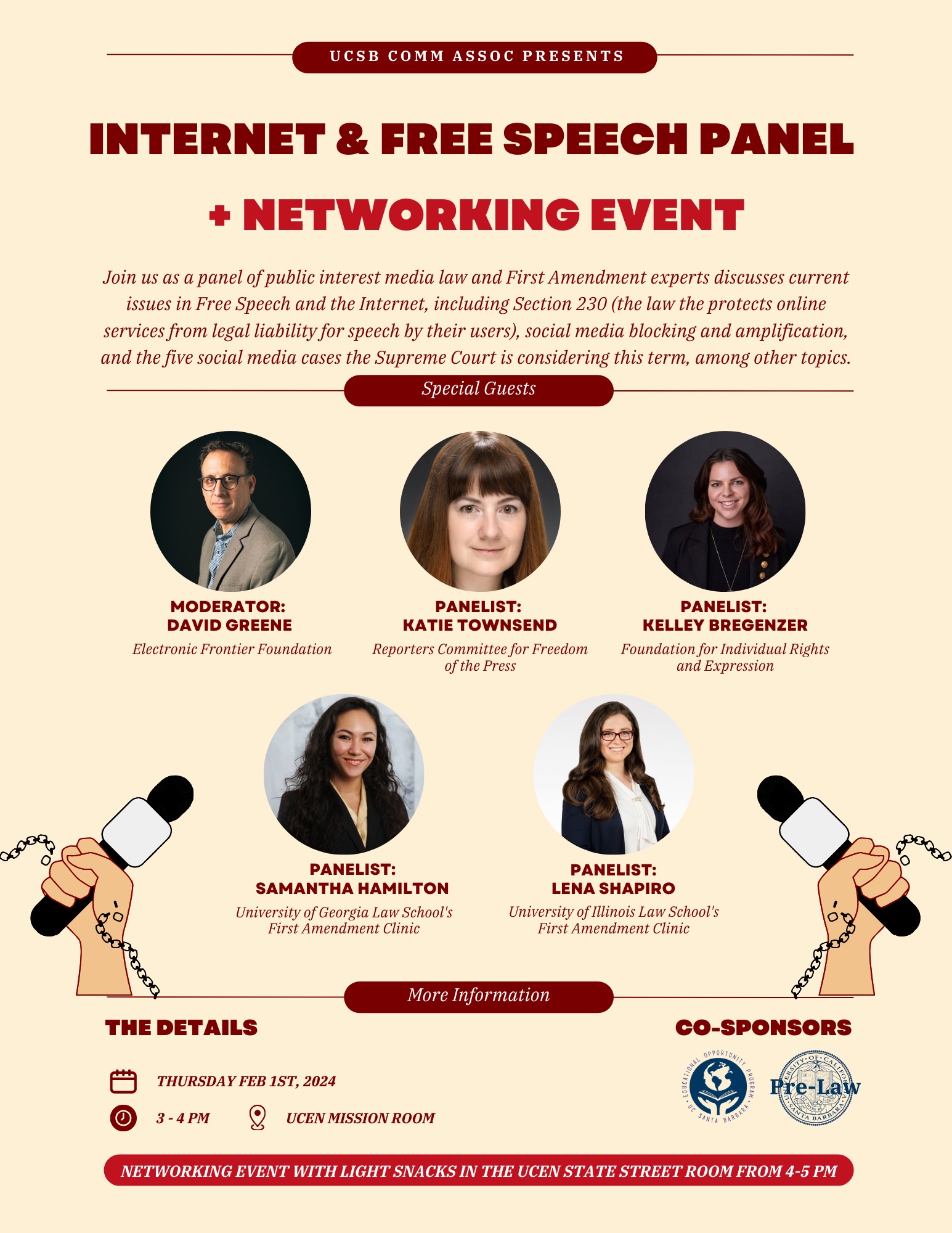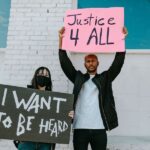
Speaking to audiences on both coasts, Clinic director Clare R. Norins and Clinic attorney Samantha Hamilton respectively unpacked some of the digital free speech issues to be decided during the U.S. Supreme Court’s 2023-2024 term.

Norins joined with CNN’s senior counsel Frank LoMonte to update civil rights litigators at the Georgia State Bar’s annual Section 1983 conference about multiple online speech cases currently pending before the high court. The issues include legislation governing content moderation by internet platforms, age verification laws, social media blocking, and government jawboning.

Hamilton spoke to journalism students at the University of California Santa Barbara about two social-media-blocking cases argued before the Supreme Court on October 31, 2023. The issue to be decided is when does a government official’s operation of a personal social media account constitute state action for purposes of the First Amendment.
The panel, moderated by Electronic Frontier Foundation’s David Greene, also featured attorneys from the Reporters Committee for Freedom of the Press, the Foundation for Individual Rights and Expression, and the director of the University of Illinois Law School’s First Amendment Clinic.

The Issue
Social Media Blocking
The First Amendment protects speech on social media platforms that have been designated as public forums by government officials or agencies. Government officials cannot block individuals from accessing their social media pages simply because the government dislikes or disagrees with their speech. Read more about our work protecting citizen speech here.
Explore Issue
The Issue
Free Speech
The First Amendment protects the right of private individuals to engage in speech and expression without being censored or punished by the government because of their viewpoint. While the government may constitutionally regulate the time, place, and manner of private speech in public forums it must do so in a viewpoint-neutral manner and, depending on…
Explore Issue